Digital Health and Care & Data-Driven Innovation
Future Technologies and Data-Driven Health & Care aims to:
- collaborate with partners to identify and develop transformative health technologies ready for adoption
- support the evolution of a technologically-skilled and knowledgeable workforce to improve health and care in the UK and beyond
- ensure that health and care systems can understand and exploit the advances in data science for the benefit of all
To achieve this, we will work directly with health, social care and third sector providers to ensure our technological innovations are co-designed with end-users (including service users and staff).
Through targeted research, we will reimagine and redesign technologies and systems, and processes and services to ensure meaningful, person-centred care models are ready for adoption at scale.
We will act as a think-tank to support the sector to consider the ‘art of the possible’ and keep abreast of emerging technological trends. We will support workforce development through the sharing of knowledge and accessible targeted learning.
Our data-focused activities will include looking at:
- how technologies and systems generate data
- how this data is managed
- how the data can be used in meaningful ways to inform decision making, plan better personalised care, deliver medicines and interventions to the right people at the right time - and in the right way - in a health and care setting (e.g. GPs prescribing antibiotics).
Our courses

MSc Digital Health Systems
Taught Masters available full-time or part-time.
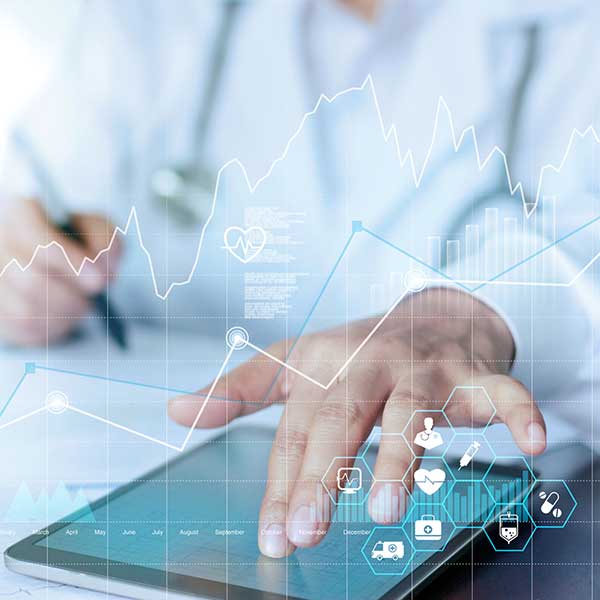
MSc Applied Statistics in Health Sciences
12 months full-time (on-campus); 36 months part-time (online).

MSc/PgDip Data Analytics
MSc: 12 months full-time, 24 months part-time PgDip: 9 months full-time
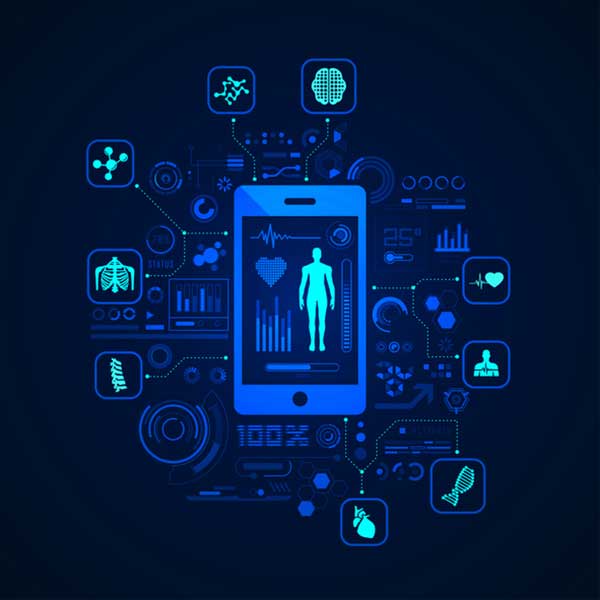
The Power of Data in Health and Social Care
Free 3 week online course for health and social care professionals

MSc Advanced Computer Science with Big Data
12 months full-time
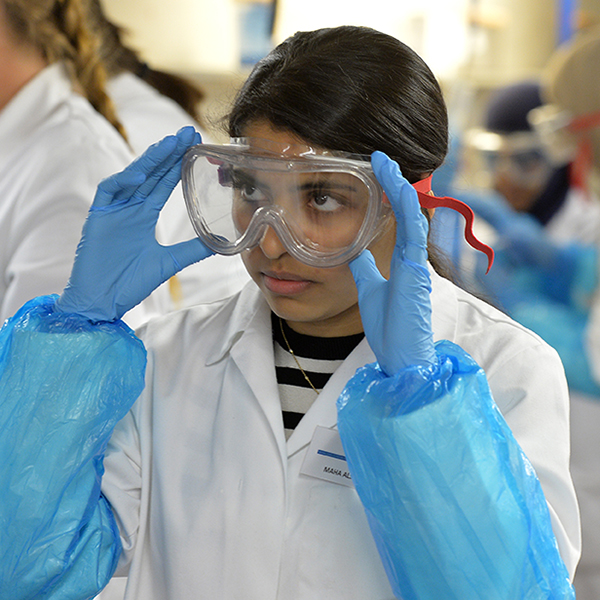
MSc/PgDip/PgCert Prosthetics & Orthotics Rehabilitation Studies
MSc: 36 months part-time
PgDip: 24 months part-time
PgCert: 12 months part-time
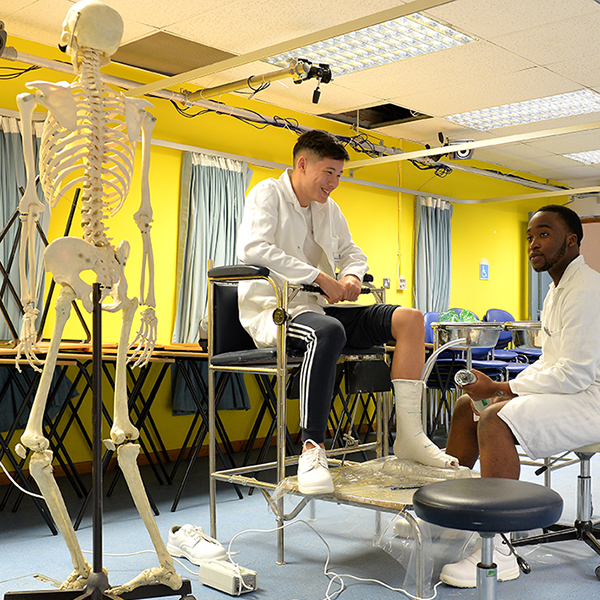
MSc Biomedical Engineering
MSc: 12 months full-time or 21 months part-time (depending on entry qualifications)
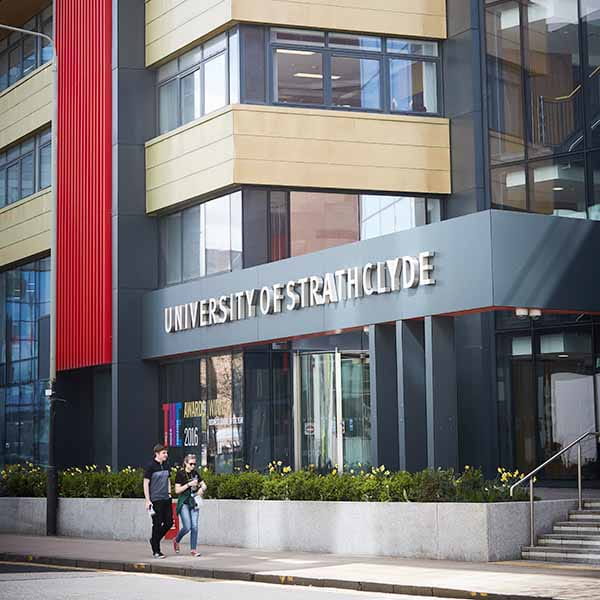
MSc Health Analysis, Policy & Management
12 months full-time; 24 months part-time
Our research
The future of technology-enabled care (independent living technology) is rapidly changing and the university have a long-standing relationship with Scottish Government in creating data analytics methods and approaches that will enable better prediction of things like falls and likelihood of hospitalisation after a fall. We're also now looking at how to reduce social isolation for older adults.
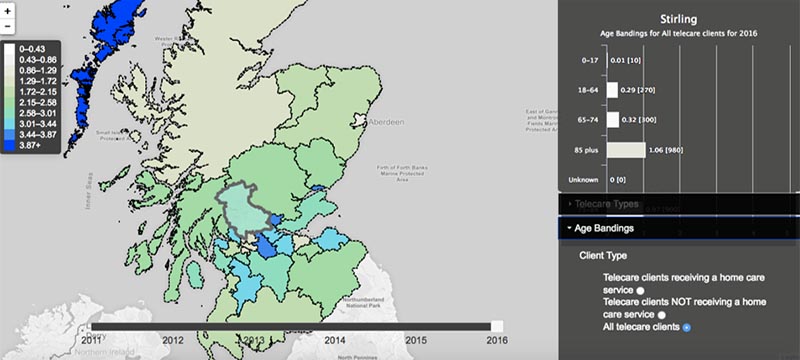
Marilyn Lennon and Kim Kavanagh are working with the Scottish Government to create a census of Technology Enabled Care Users across Scotland.
Our work also involves creating tools for predicting and managing the risk of medicines, particularly antibiotics. The CDI Risk Predictor, is a digital tool that aims to support clinicians during antibiotic prescribing. Upon the input of patient data, the CDI Risk Predictor can predict the risk to contract Clostridioides difficile (C. difficile) infection within 12 months.
The tool was created by interviewing primary and secondary care clinicians, which allowed researchers to understand their preferences on the tool's format, and the barriers and facilitators for the implementation.
The university provide a range of expertise in the use of technology such as smartphones, smartwatches, tablets, and wearables to diagnose and to promote and monitor symptoms and lifestyle factors such as sleep or physical activity. These studies are being explored in several different populations at Strathclyde including in young children across Scotland and Sweden, in people with Type 1 and Type 2 diabetes, and in older adults.
New research into Covid-19
New research into Covid-19 at Strathclyde is exploring a range of topics including how people’s behaviours are changing in response to social distancing and lock-down to see if and how technology has played a role in creating any new beneficial behaviours and what role technology can play in sustaining these after lock-down.
Remote Eye Examination made possible
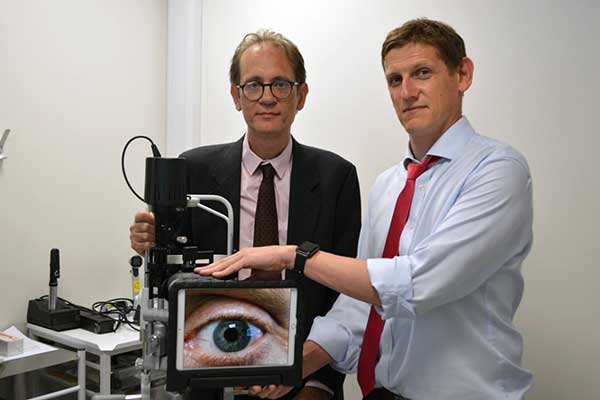
Dr Mario Giardini, working with clinical colleagues, has developed a new remote eye examination technique to improve the urgent diagnosis of eye conditions. Using a mixture of 3-D printed technology developed at Strathclyde, combined with the Scottish Government funded NHS Near Me Video Consultation Platform, eye doctors can remotely examine patients in emergency departments and High Street opticians.
Exciting new therapy for producing surgical bone grafts
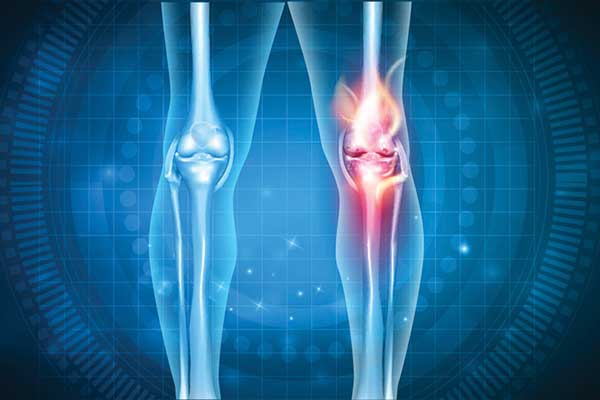
Professor Stuart Reid and his team in the Dept Biomedical Engineering are working on an exciting new therapy for producing surgical bone grafts.
The technique uses nanovibrational stimulation (“nanokicking”) to promote osteogenesis in mesenchymal stem cells, first demonstrated in 2013 by Professors Reid (Strathclyde) and Dalby (Glasgow).
This breakthrough has the potential to revolutionise the provision of surgical bone graft. It is the first induction-factor-free and scaffold-free demonstration of osteogenesis and can be carried out in clinically approved collagen gel (Nature BME, 2017).
Laboratory for Innovation in Autism
The cross-disciplinary Laboratory for Innovation in Autism works to advance smart device and wearable technologies for early artificial intelligence identification of autism, reducing diagnostic bottlenecks and enabling educational and clinical care early for best life-long outcomes.

Knowledge exchange case studies
WellBot
The university has worked with a company called WellBot to inform a new product that can identify patterns of working (via logging activity on a desktop computer) and nudging workers to move at regular intervals.
SmartMeter GB
Dr Marilyn Lennon and Dr Mark Dunlop from the Department of Computer & Information Sciences worked with SmartMeter GB to advise how smart meters and the data generated from them can be used to influence energy consumption and behaviours.
Ophthalmic Imaging & Diagnostics
Development of phone-based hardware for ophthalmic imaging and diagnostics in the community, to extend access to eye care globally.
3D Printed Models for Surgical Training
Professor Shu from the Department of Biomedical Engineering and his team developed unique, hyper-real 3D printed artificial models for vascular training in collaboration with Organlike Ltd and leading surgeons from the University of Aberdeen and the Royal College of Surgeons of Edinburgh. This project has led to the first home-based training to vascular trainees in the UK and Ireland.